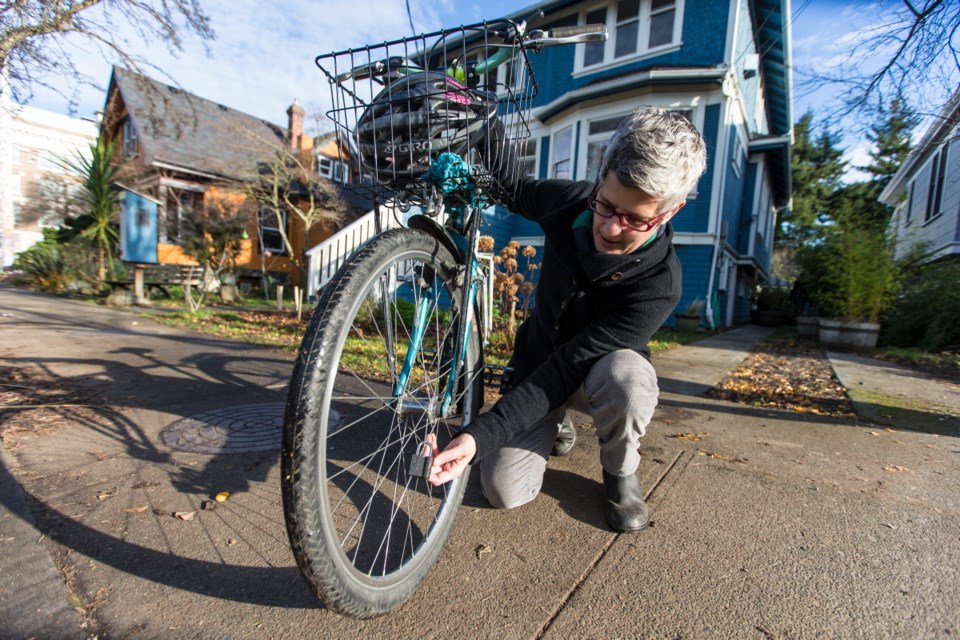Victoria’s mayor is disturbed by an act of sabotage on her bike Friday night in what she says could be a message of opposition to the city’s bike-lane plans.
Lisa Helps was leaving the Vic Theatre at the corner of Humboldt and Douglas streets after a climate-change event when she discovered two small padlocks clipped onto the spokes of both wheels.
Helps said the locks appeared strategically placed to get caught in her brakes once she started to ride her bike.
“They were small enough to not be noticed and big enough to do harm,” she said. “I’m just glad I didn’t get hurt.”
Helps believes the person tampered with the bike between 7:30 and 9:15 p.m. during the Our Climate Our Future event, where Helps laid out the city’s climate-change goals after a screening of Al Gore’s film An Inconvenient Sequel.
Cam Owens, a University of Victoria geography professor, helped tuck the locks into the spokes in a way that would let Helps safely ride home.
She plans to use bolt cutters to remove the locks.
Helps reported the incident to Victoria police.
“I don’t want to speculate and I also don’t have a paranoid bone in my body, but I think it’s pretty clear it’s a targeted attack against me,” Helps said. “I don’t want to speculate on motivation, but I don’t think it was random.”
She was listed as a speaker at the event, and her self-described “crappy, beat-up old mountain bike” has been featured in the media before.
In 2015, Helps’s bike was stripped of its seat and wheels as it was locked up outside city hall.
Last week, Victoria councillors gave the green light to spend another $3 million to complete the first phase of the city’s protected bike-lane network, bringing the total cost of the 5.4-kilometre downtown network to an estimated $14.5 million.
The bike-lane plans have been divisive, leaving many Victoria taxpayers frustrated by traffic congestion and the rising price tag.
Helps said if the sabotage was done by someone upset with the bike lanes, it shows a deep misunderstanding of the city’s goal.
The city has moved away from branding the initiative “Biketoria” because bike lane infrastructure, Helps said, includes improvements for pedestrians, those who take public transit and those with accessibility challenges.
“Even though it’s been cast as bikes versus cars … it’s really about improving the public realm for everyone and creating more transportation choices.”
Helps said she understands change can be difficult, but rather than “vitriol and meanness,” people can have their voice heard through feedback to the City of Victoria.
Since posting about the incident on Facebook, Helps said she has received many messages of support.
Many have said: “Even if you disagree with the way the city is going, this is not the way to have your say,” Helps said.



